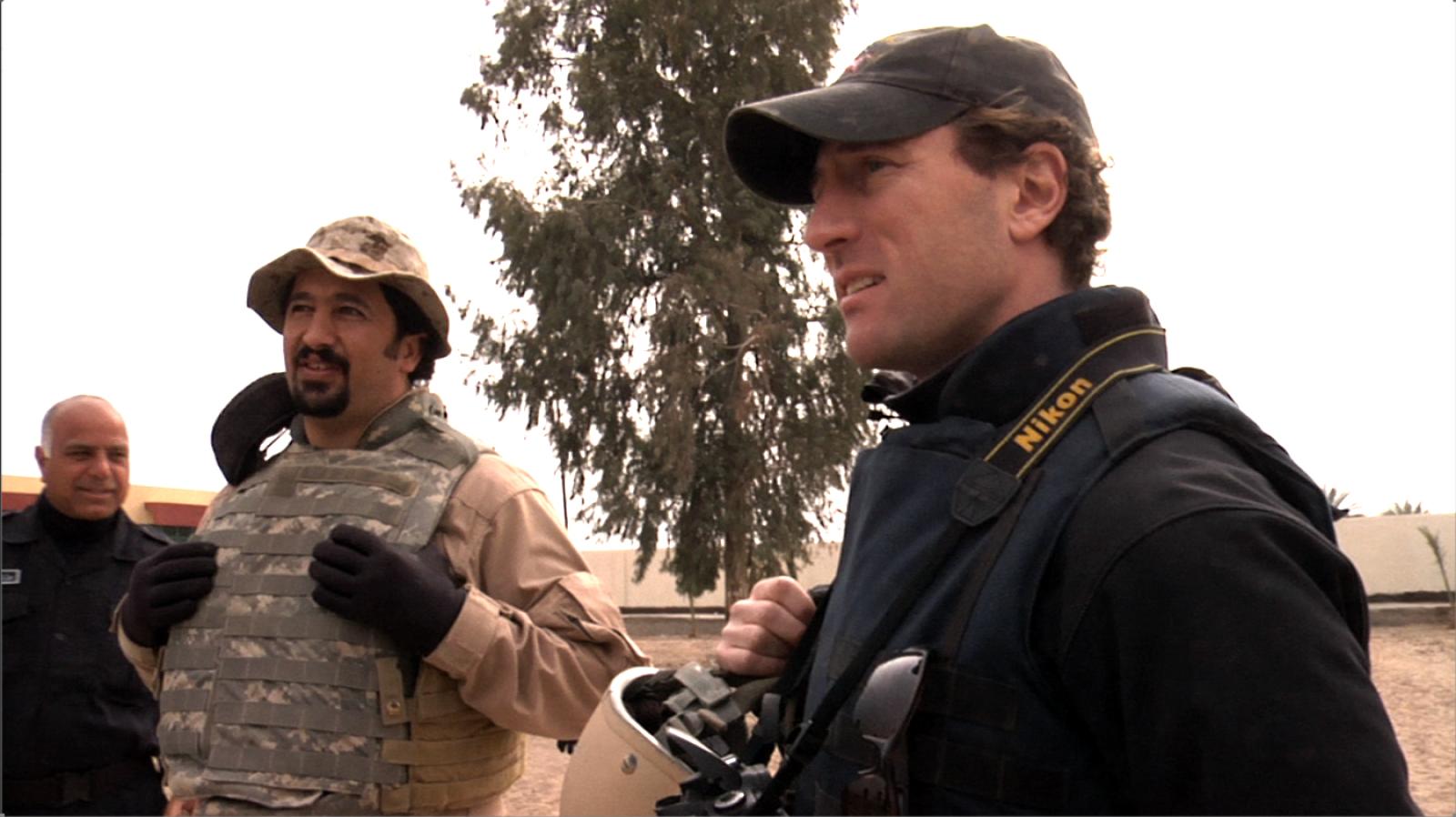In 2004, as an officer in the United States Marine Corps, summer Chilmarker Zachary Iscol was sent to fight in Al Anbar, the most violent province in all of Iraq. He was a young man full of idealism and naivete, with no idea what the war had in store for him. He learned soon enough,
“When you’re fighting in a war where the enemy hides among civilians, you’re put in these impossible predicaments where you have to choose between protecting yourself, protecting your marines, and possibly killing innocent people,” said Mr. Iscol in an interview this week. “And we killed innocent people.”
At the time, there wasn’t much of a choice. At the time, Mr. Iscol and his fellow marines did what they felt needed to be done. But the justification didn’t help with the lingering doubts. When he returned from his tour of duty and left the Marine Corps, Mr. Iscol set to work writing and directing a documentary film that would help him to answer some of his own questions and confront the horrors that he’d seen in Iraq.
“There are these impossible choices that you have to make in war,” he said. And in the end, one choice is no better than another. “Not only do you end up creating a tragedy for somebody’s family, but another tragedy is you end up doing this, and you do it for all the right reasons,” he said.
The film is titled The Western Front, a loose reference to the 1930 war classic All Quiet on the Western Front. And though the film is not yet finished, it has been accepted to screen as a work in progress at the high-profile Tribeca Film Festival later this month. Mr. Iscol said that the work is really a study of those impossible choices that everyone is forced to make in a time of war, and the fact that violence simply begets more violence.
“If you kill an innocent person, and that person has brothers, who have children, there’s always sort of the question of how many enemies did you create?” said Mr. Iscol.
In the end, the Marine Corps seemed to realize that their tactics were not making the desired impact in Al Anbar. Today, it is one of the most peaceful provinces in Iraq, but not because the soldiers conquered insurgents with violence.
“The Marine Corps sort of learned over time that killing is not an effective way of guaranteeing the peace,” said Mr. Iscol. “Things got so bad that they started negotiating and working with a lot of the people that they’d been working against. The province was sort of transformed, overnight.”
But that didn’t necessarily make it easier for the soldiers to make peace with themselves, including Mr. Iscol. “You’re left holding the bag, saying to yourself, ‘So we came in here, we [messed] it up, and I’m responsible for making it worse,’” he said. “Now it’s better than when I was there making it worse, but what have we really accomplished at the end of the day?”
Filming took Mr. Iscol across the United States for interviews in California, North Carolina and Virginia, and twice back over the ocean to Iraq. He said that when it is finished, the film will offer a unique mixture of experiences from all people touched by the war.
“It’s a film that I hope is very honest,” he said. “You hear from the marines . . . and you also hear from the Iraqi civilians and even an insurgent about what it’s like to be on the other side. There’s no right or wrong. There’s no bad guy in the film.”
His role as writer and director has consumed most of Mr. Iscol’s time since he left the Marine Corps, but he still has other projects in the works. He’s currently planning a benefit to sponsor disabled U.S. war veterans to go to Haiti to help Haitian victims disabled by the earthquake heal and learn to cope.
“It’s really in the initial stages,” he said. “We’re working on forming a partnership with some [non-governmental organizations] down there so that these disabled veterans can go down and work alongside organizations that are already on the ground.”
And last fall, Mr. Iscol sequestered himself in his family home in Chilmark to edit The Western Front. There’s still work to be done, but after spending two years on the project, he’s hoping it will have a long-reaching impact.
“The point of the film is to figure out a way to challenge the way we think about violence as a solution, or as something that makes us safer,” he said. “We’re right now a country that’s engaged in perpetual war. And does it really make us safer?”




Comments (1)
Comments
Comment policy »